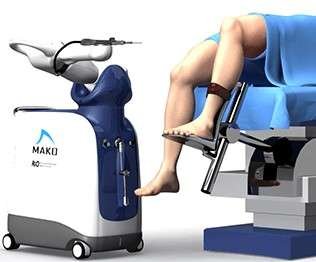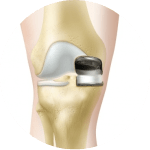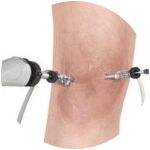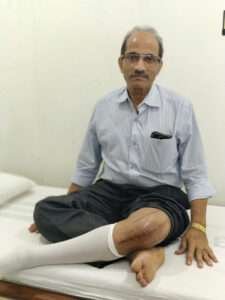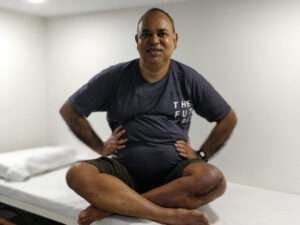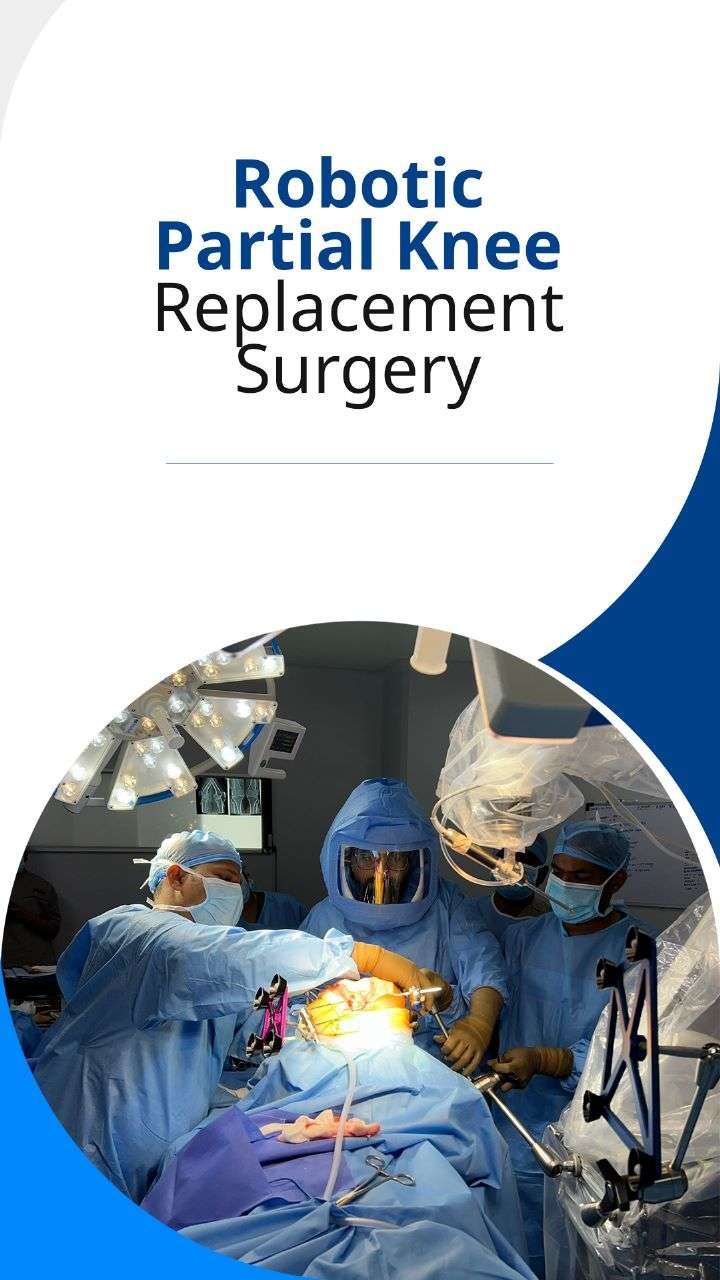
Revolutionizing Orthopedics: Exploring Robotic Partial Knee Replacement Surgery
Introduction
Advancements in medical technology have led to significant breakthroughs in various fields of healthcare, and orthopedics is no exception. One such groundbreaking development is the emergence of robotic partial knee replacement surgery, which is revolutionizing the way knee surgeries are performed. This innovative approach combines the precision of robotic technology with the expertise of orthopedic surgeons to deliver better outcomes for patients suffering from knee joint disorders. In this article, we delve into the world of robotic partial knee replacement surgery, exploring its benefits, the role of a Robotic Knee Replacement Surgeon, its status in India with a focus on Mumbai, and its potential in transforming orthopedic procedures.
Robotic Partial Knee Replacement Surgery: Redefining Precision and Personalization
Orthopedics is a branch of medicine that deals with the diagnosis, treatment, and rehabilitation of musculoskeletal disorders. Knee osteoarthritis, a common orthopedic condition, often requires surgical intervention to relieve pain and restore function. Traditional knee replacement surgery involves removing the damaged portions of the knee joint and replacing them with artificial implants. However, this procedure can be invasive, leading to longer recovery times and potential complications.
Robotic partial knee replacement surgery introduces a new level of precision and personalization. By incorporating robotic assistance into the surgical process, surgeons can create a detailed 3D model of the patient’s knee joint, allowing for accurate mapping of the damaged areas. This enables the surgeon to preserve healthy tissue, resulting in a more natural post-surgery feel and improved range of motion. The precise nature of robotic technology reduces the margin of error, leading to better implant alignment and potentially longer-lasting results.
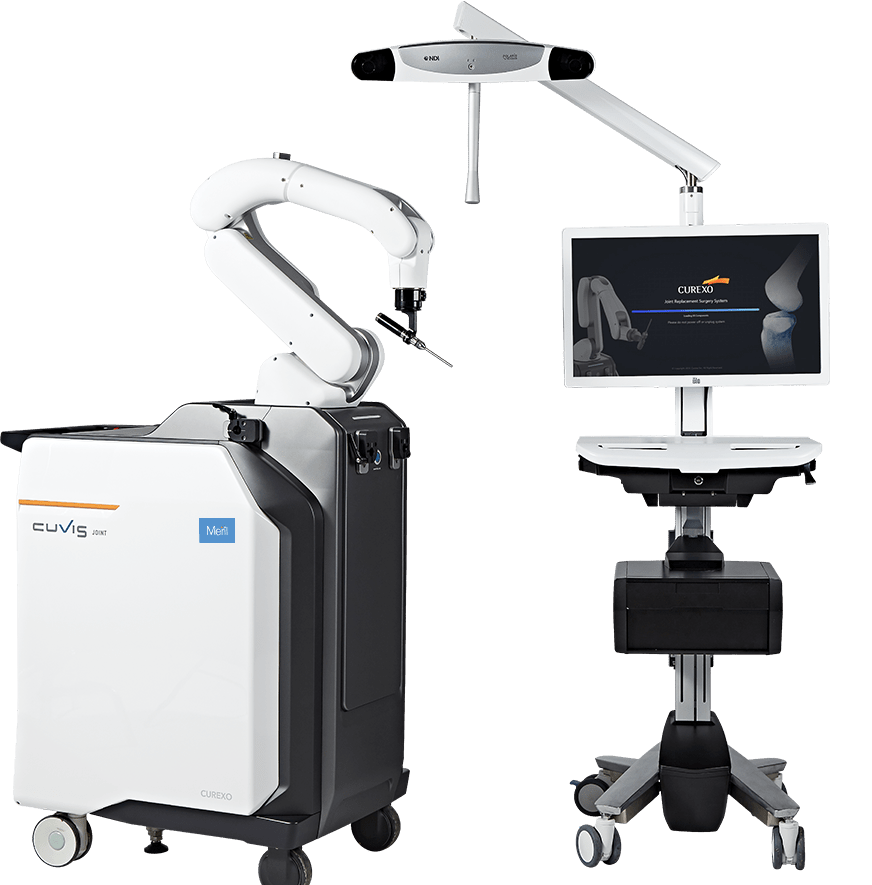
The Role of a Robotic Knee Replacement Surgeon: Collaborating with Technology
A Robotic Knee Replacement Surgeon plays a pivotal role in the success of robotic partial knee replacement surgery. While technology provides the tools, it is the surgeon’s expertise that guides the procedure. These surgeons undergo specialized training to operate the robotic system and interpret the real-time data it provides. They collaborate with the robot to ensure accurate bone preparation and implant placement.
Robotic Partial Knee Replacement in India
India’s healthcare landscape has been witnessing rapid advancements, and robotic partial knee replacement surgery has gained prominence in the orthopedic community. With its large population and increasing prevalence of knee joint disorders, India is embracing innovative solutions to address the healthcare needs of its people.
Mumbai, often referred to as the healthcare hub of India, has been at the forefront of adopting robotic technology in orthopedics. Robotic Knee Replacement Surgery in Mumbai offers patients access to state-of-the-art facilities and skilled Robotic Knee Replacement Surgeons. The city’s healthcare infrastructure, coupled with the expertise of its medical professionals, positions Mumbai as a leading destination for individuals seeking advanced orthopedic treatments.
Transforming Orthopedic Procedures: Future Potential
Robotic partial knee replacement surgery represents a significant step towards the future of orthopedics. As technology continues to evolve, we can expect further refinements in robotic systems, enhancing their capabilities and expanding their applications. Robot Assisted Total Knee Replacement Surgery, for instance, aims to address more extensive knee joint damage while retaining the benefits of robotic precision.
The potential benefits of these advancements are far-reaching. Reduced surgical invasiveness translates to quicker recovery times, shorter hospital stays, and less post-operative pain. The personalized nature of robotic procedures leads to improved patient satisfaction and long-term outcomes.
In conclusion, the field of orthopedics is undergoing a remarkable transformation with the integration of robotic technology into partial knee replacement surgery. This innovative approach, championed by skilled Robotic Knee Replacement Surgeons, offers precise and personalized solutions to patients dealing with knee joint disorders. India, with its focus on healthcare excellence, particularly in cities like Mumbai, is embracing this technological advancement. As the journey continues, the collaboration between medical expertise and robotic precision promises a future where orthopedic procedures are safer, more effective, and tailored to individual needs.
Conclusion: Embracing a New Era in Orthopedics
The integration of robotic technology into orthopedic procedures, particularly in the realm of partial knee replacement surgery, marks a significant leap forward in healthcare innovation. This fusion of precision technology and surgical expertise has the potential to redefine orthopedics and enhance the quality of life for countless patients. With the expertise of a Robotic Knee Replacement Surgeon guiding the way, patients can expect procedures that are not only technologically advanced but also tailored to their unique needs.
Mumbai, a bustling hub of healthcare excellence in India, is a prime example of how this revolution is taking shape. The city’s embrace of robotic knee replacement surgery underscores its commitment to providing cutting-edge medical solutions to its residents and beyond. Dr. Bakul Arora, renowned as one of the Best Knee Replacement Surgeons in Thane and Mumbai, stands at the forefront of this transformative journey. His expertise and dedication exemplify the bridge between human proficiency and robotic precision, ensuring that patients receive the best possible care.
As technology evolves further, the horizon of possibilities broadens. The prospect of Robot Assisted Total Knee Replacement Surgery showcases the potential to address more complex cases with the same level of accuracy. With every advancement, orthopedics moves closer to a new era where surgical interventions are not just procedures but personalized experiences that restore mobility, alleviate pain, and inspire hope.
FAQS
Partial knee replacement surgery is suitable for patients who have arthritis primarily limited to one compartment of the knee joint. It is essential to undergo a thorough evaluation by an orthopedic specialist in Thane to determine if partial knee replacement is the right option for you based on your individual condition and medical history.
In partial knee replacement surgery, only the damaged part of the knee joint is replaced, preserving the healthy portions. Total knee replacement, on the other hand, involves replacing the entire knee joint. Partial knee replacement is a less invasive procedure with a shorter recovery period and potentially fewer complications. It is generally recommended for patients with isolated arthritis in one compartment of the knee.
Some of the benefits of partial knee replacement surgery include:
- Preservation of healthy bone and tissue
- Smaller incisions and less tissue trauma
- Faster recovery and rehabilitation
- Reduced post-operative pain
- More natural knee movement and function
- Potential for a more rapid return to daily activities
The recovery time can vary from patient to patient, but generally, partial knee replacement surgery has a shorter recovery period compared to total knee replacement. Most patients are able to walk with the assistance of a walker or crutches within a few days after surgery. Physical therapy and rehabilitation play a crucial role in restoring strength, flexibility, and mobility, with most patients returning to normal activities within several weeks to a few months.
While partial knee replacement surgery is generally safe, like any surgical procedure, there are potential risks and complications. These may include infection, blood clots, implant loosening, nerve or blood vessel damage, persistent pain, stiffness, or the need for additional surgery. It is important to discuss these risks with your surgeon and follow all post-operative instructions to minimize potential complications.
Partial knee replacement surgery aims to relieve pain and restore function, allowing patients to resume their normal activities with improved joint function. However, it is essential to follow your surgeon’s guidance and gradually increase activities as part of the rehabilitation process. Your surgeon will provide specific instructions on when it is safe to return to various activities, including sports and high-impact exercises.
Partial knee replacement surgery is a long-term solution for managing arthritis in the affected compartment of the knee. The longevity of the implant depends on various factors, including your age, activity level, and adherence to post-operative care. While the implant may eventually wear out over time, partial knee replacements have shown excellent long-term outcomes, providing relief from pain and improving joint function for many years.
It is normal to experience some discomfort and pain in the initial stages of recovery. However, the intensity of pain gradually decreases over time with appropriate pain management techniques prescribed by your surgeon. Pain medications, physical therapy, and following the recommended rehabilitation program will help manage any post-operative discomfort.
Thank You "Times Group" for felicitating Arora Clinic for "Excellence in Patient Care"
We are really honored to receive this and we will continue to serve the society better than ever We aim to provide the world-class Knee/Hip Replacement Surgical (Minimal Invasive Surgery) treatment to every patient suffering from knee or hip pain and at the same time make their life pain-free and happy.
Our Services
Are you looking for Best Knee Replacement Surgeon?
Then you are at Right Place
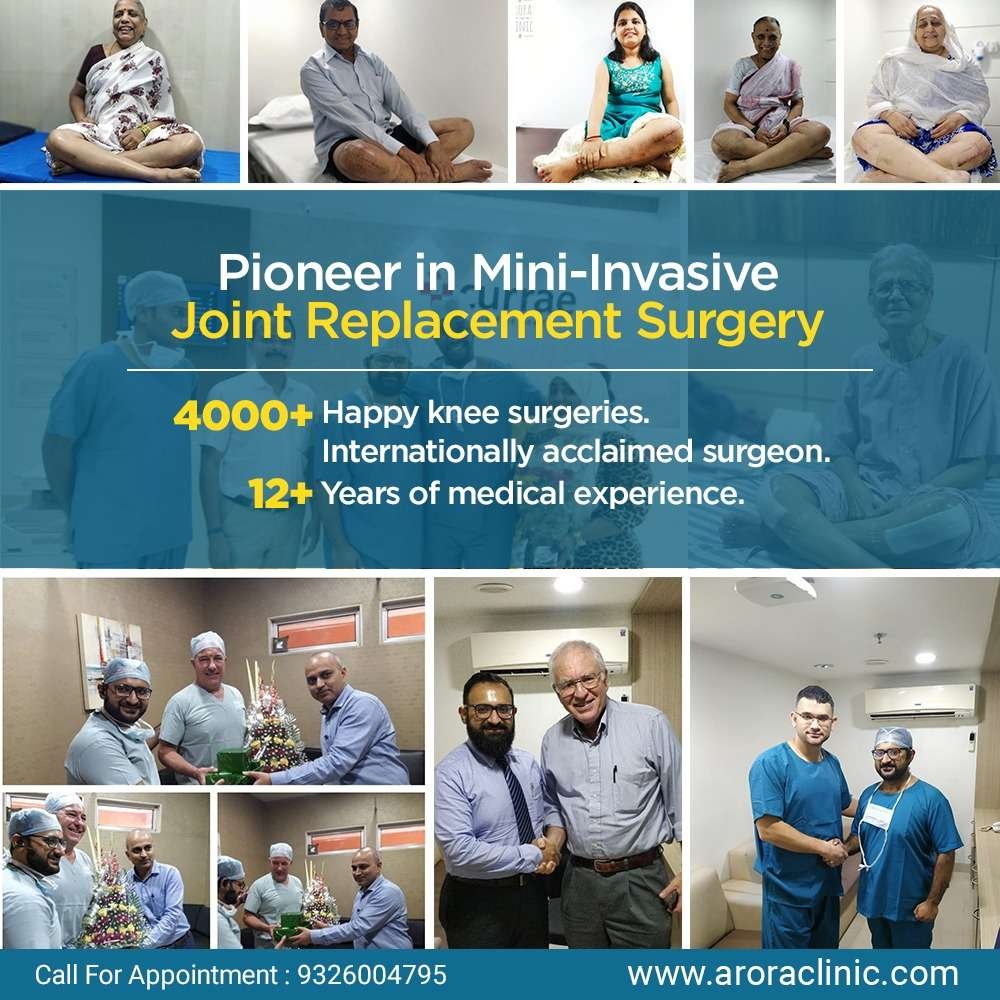
Dr. Bakul Arora’s Joint Replacement Clinic is also known as “Arora Clinic” which is located at Hiranandani Meadows in Thane, within a very convenient proximity to Mumbai. Arora Clinic dedicated clinic for Knee Replacement surgery and all kinds of Orthopaedic treatments and surgeries
The Arora Clinic is one of the most advanced Orthopaedic clinic in Thane region and dedicated to providing the best, personalised healthcare with a breadth of surgical and medical expertise. Arora Clinic offers the modern surgical treatments like “Minimally Invasive Knee Replacement Surgery” which is also called as “PAIN-LESS SURGERY” for any complex knee diseases.
About Surgeon
Dr. Bakul Arora is a Consultant Joint Replacement & Orthopaedic Surgeon is one of the leading Knee Replacement Surgeon in Thane and Mumbai with over 4000+ successfully surgeries. Dr. Bakul Arora specialises in Mini-invasive techniques which offer multiple benefits to patients. He does the surgery using Subvastus approach for Knee Replacement surgery and Direct Anterior Approach for Hip replacement Surgery . This new techniques has many advantages for patients like its pain-less , stich-less surgery, patients walks on the same day after surgery, no blood loss, faster recovery etc.


Patients Review on Arora Clinic
International Patients Videos
FAQS
Knee replacement is required for advanced arthritis of the knee joint, producing painful limitation of movements and restriction in activities of daily living. Knee replacement as a solution should be offered when all non–surgical methods of treatment failed and painkiller medicines and injections also failed to reduce the Knee and hip pains.
Knee replacement can be total or unicondylar, depending on the number of compartments involved. Among the total knee replacement, there are two popular designs- Cruciate Retaining, and Posterior Stabilized. The decision for the design is best taken by the operating orthopedic surgeon based on the integrity of ligaments. Patella resurfacing as a routine is a debatable subject.
Yes, most knee replacement surgeries are minimally invasive, with numerous benefits to the patient, including smaller incisions, less tissue trauma, bleeding and post–operative pain, shorter hospital stays, faster recovery, and earlier return to work and activities — in weeks rather than months. Advantages of Minimally Invasive Knee Replacement Surgery. Patients Start walking in few hours of surgery. Patients start climbing the staircase from second day of his surgery. Patients Discharge with in 3 Days from the Hospital after surgery. No blood loss during the surgery, no blood Transfusion required. Less Physiotherapy.( No Physiotherapist required for home) Less Antibiotic. Stitchless Surgery. Recovery time is just two – three week.
Bilateral knee replacement in the same sitting, can be performed if both the knee joints are damaged to the same extent, however, the medical condition of the patient, and bone quality must be kept in consideration.
Surgery through Minimally Invasive technique patients start walking on the same day and staircase climbing starts from the second day of surgery. Patients can resume his work after 3 – 4 week.
The most significant risks include Infection, Deep vein thrombosis,and Aseptic loosening of implants. The risks correlate with the co-morbid medical condition, and must be discussed with the patient before surgery.
Patients normally require hospitalization for 3-4 days in single knee replacement, and up to 5-6 days in both knee replacement surgery
A single knee replacement takes approximately 90 min- 2 hours. Both knee replacement surgery takes approx 2-3 hours.
Years ago, knee replacement surgery was reserved for elderly patients due to a high complication rate and lack of implant durability. Modern techniques have allowed orthopaedic surgeons to base surgical decisions on a patient’s pain and disability, and not necessarily chronological age. Most patients who undergo knee replacement are between the ages of 50 and 80, but surgeons evaluate patients individually and primarily on their physiologic age and demands.
Patients can resume his/her light work after discharge from the hospital, no need for rest.
Patients are given epidural anesthesia for surgery, and post op pain relief. They are expected to follow instruction from physiotherapist regarding muscle training.
News Events


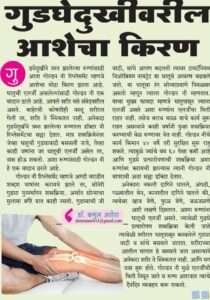

Locate Our Clinic
OUR HOSPITAL PARTNERS
MUMBAI
⇒ Wockhardt Hospital Mumbai Central, Mira road & Vashi
⇒ Apollo Spectra Hospital, Tardeo and Chembur
⇒ Cloud 9 Hospital, Malad
⇒ Criticare Hospital, Andheri
THANE
⇒ Arora Clinic, Hiranandani Meadows
⇒ Bethany Hospital, Vasant Vihar
⇒ Currae Hospital, Kapurbawdi
⇒ Horizon Hospital, Ghodbunder
⇒ Infinity Hospital, Majiwada
⇒ Lakecity Hospital, Khopat
⇒ Oscar Hospital, Majiwada
⇒ Drone Hospital, Bhiwandi


